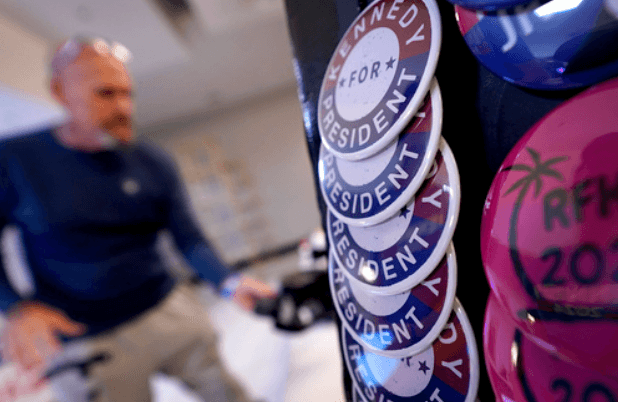Kennedy’s Trump Endorsement Fails To Bolster Poll Numbers
One month ago, on Aug. 23, Robert F. Kennedy Jr. dropped out of the presidential race and endorsed former President Trump. At the time, most predicted that Kennedy dropping out of the race would bolster Trump’s support, as more Kennedy voters were expected to support Trump than Vice President Harris. However, this added support has not materialized, as Harris still leads in the multiway race.
In the National Multi-Candidate RealClearPolitics Polling Average when Kennedy dropped out, Harris led by two points, 46.7% to 44.7%, with Kennedy at 4.8%, Green Party candidate Jill Stein at 0.8%, and independent Cornel West at 0.6%. Since then, Harris’ lead has not dropped in the multiway RCP Average; instead, it actually increased to 2.4 points. The endorsement hasn’t helped in the head-to-head race either. Since Aug. 23, Harris’ lead has expanded from 1.6 points to 2.3 points in the Heads-Up RCP Average.
After the endorsement, a Trump campaign memo indicated their polling found that, on average, 53% of Kennedy’s supporters would vote for Trump, while 29% would support Harris, giving Trump a net 24% of Kennedy’s 4-5% of voters. Based on this prediction, Trump should have gained around 1% since the endorsement, but in the multiway race, he trails similarly to how he did before the endorsement.
One reason the endorsement might not have had the predicted effect is that Libertarian candidate Chase Oliver has gained popularity. Before Kennedy dropped out, Oliver was relatively unknown, receiving less than 1% of the independent vote and a negligible amount of the general population vote, while Kennedy received 10% of support from independents and 3% from Democrats and Republicans, according to a New York Times/Siena poll from late July. In the latest New York Times poll, Oliver now has 3% of the independent vote and between 0.5% and 1% of Democrats and Republicans, giving him 2% total support.
His increase in support is also reflected in the RCP Average. Before Kennedy dropped out, polls either didn’t ask about Oliver, or he didn’t receive enough support to be included in the results. Now, however, he has 1.1% in the multiway RCP Average, and other third-party candidates, Stein and West, have also increased their support marginally to 1.1% and 0.9%, respectively. Although these figures pale in comparison to Trump and Harris’ support, given the small margin between the two candidates nationally and even less in some swing states, the support for third-party candidates could affect the election.
As for Kennedy, it seems that while he might have helped Trump slightly – Trump is polling about one percentage point better than he was a month ago in the multiway race, from 44.7% then to 45.8% now – Harris’ support has steadily increased since entering the race, starting at 42.5% when she joined, rising to 46.7% at the time of the Kennedy endorsement, and now at 47.9% as people have learned more about her and her policies. The rise in support for Harris appears to have offset the increase in support from Kennedy’s endorsement, making it less impactful than predicted on polling and the election.
2024 State Races
Get caught up on the most important polling for the most consequential races of 2024.

